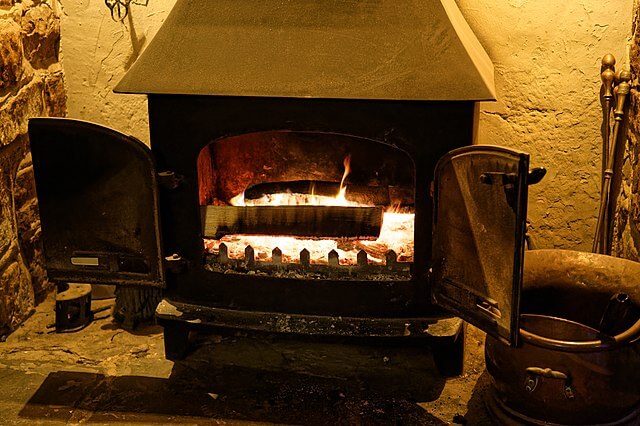
A recent US study reveals a concerning 43% increase in the risk of lung cancer among women using indoor wood stoves or fireplaces compared to those without wood heating.
In the UK, lung cancer diagnoses are anticipated in one in 13 men and one in 15 women born after 1960, while in the US, the figures stand at one in 16 men and one in 17 women.
The study, conducted within the Sister Study framework tracking the health of 50,000 US women with sisters having breast cancer, underscores a heightened risk associated with more frequent use of indoor wood heating. Those utilising wood burners for over 30 days annually face a significant 68% increase in lung cancer risk compared to non-users.
Globally, tobacco smoking remains the predominant risk factor for lung cancer, but the Sister Study underscores that it is not the sole contributor. After an average 11-year monitoring period, during which 347 participants were diagnosed with lung cancer, the research accounted for income and other influencing factors. Clear distinctions in lung cancer risk were evident in both tobacco smokers and non-smokers utilising indoor wood heating.
In the UK, only 4% of homes relying on solid fuel have it as their primary heating source. The Sister Study homes predominantly used gas or electricity for heating, with wood serving as a secondary or tertiary source. The study contributes to a growing body of evidence highlighting the cancer risks associated with wood smoke.
Notably, in 2006, the International Agency for Research on Cancer categorised wood smoke as probably carcinogenic to humans. An international study from 2010 echoed these concerns, associating wood and coal heating with increased lung cancer risk.
While the Sister Study acknowledges a slight elevation in lung cancer risk associated with gas or propane heating in stoves and fireplaces, this risk is considerably smaller than that linked to wood burning. Importantly, a previous Sister Study report identified air pollution from indoor wood burning as a widespread and potentially modifiable risk factor for breast cancer.
In summary, the study sheds light on the heightened risk of lung cancer, especially among women, associated with indoor wood heating, adding to the existing body of evidence and emphasising the need for awareness and potential modifications in heating practices for public health.
——————————————————————————
At Natural World Fund, we are passionate about stopping the decline in our wildlife.
The decline in our wildlife is shocking and frightening. Without much more support, many of the animals we know and love will continue in their decline towards extinction.
When you help to restore a patch of degraded land through rewilding to forests, meadows, or wetlands, you have a massive impact on the biodiversity at a local level. You give animals a home and food that they otherwise would not have had, and it has a positive snowball effect on the food chain.
We are convinced that this is much better for the UK than growing lots of fast-growing coniferous trees, solely to remove carbon, that don’t actually help our animals to thrive.
This is why we stand for restoring nature in the UK through responsible rewilding. For us, it is the right thing to do. Let’s do what’s right for nature!
Donate today at https://naturalworldfund.com/ and join in the solution!

